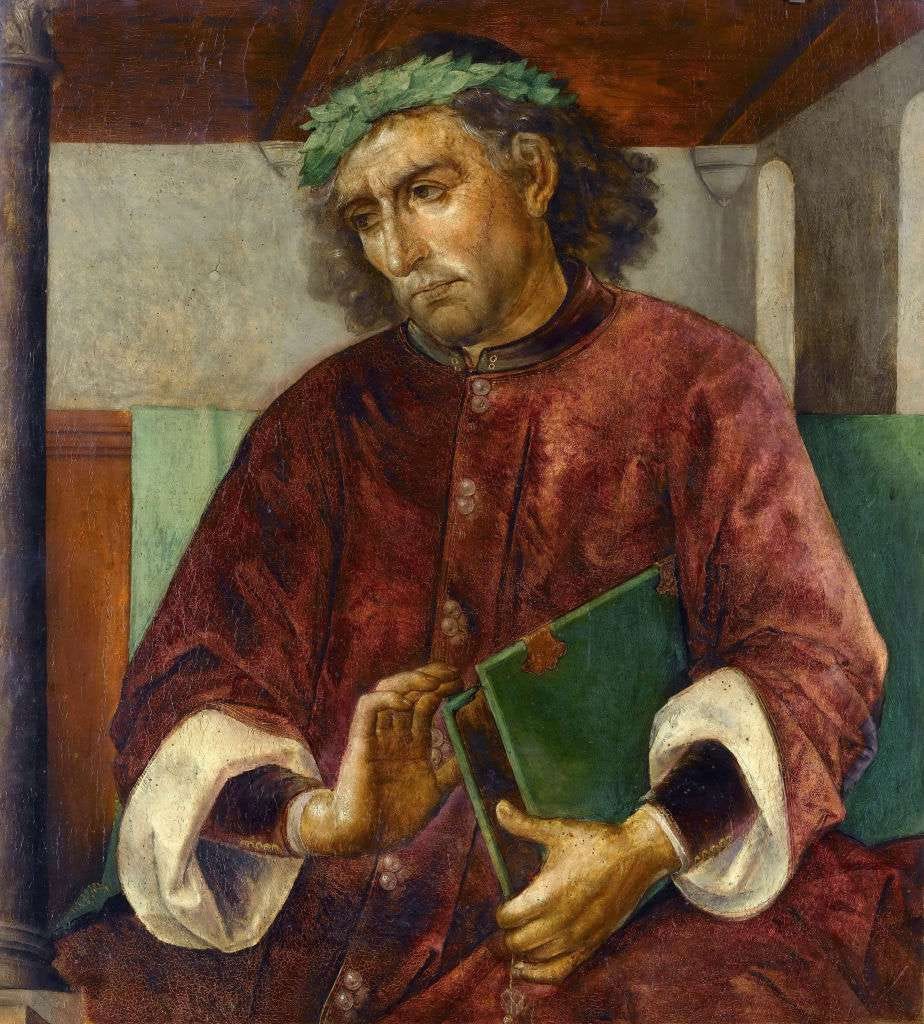Aeneid 4.1: Phusis en Poiesis
Summary 18 # Man, God, and Society in Western Literature - From Gods to God and Back
The German philosopher Martin Heidegger outlines a "history of being." The two "works of art" discussed so far fit into the first two phases of this history.
The "understanding of being" among the Homeric Greeks is "Phusis," which can be translated as "nature" that "wells up" or "bursts forth." Plants grow, display their radiant beauty, and then fade away. This certainly applies to the Iliad, and to a slightly lesser extent, to the Odyssey: heroes "well up," as do powerful emotions like anger; heroes experience bursts of inspiration, and storms appear. Nature in this first phase of the "history of being" is overwhelmingly powerful and impossible to control. The art was to move along, to let yourself be carried away by what arose. Think, for example, of Helen allowing herself to be swept up by the growing sentiment of love for Paris.
The classical Greek world, 500 years after the Iliad and Odyssey, has a different “understanding of being,” which Heidegger refers to as “poiesis,” meaning “cultivation.” Things still “burst forth” but you cultivate them to 'bring out the best in them'.
Thus, in the Oresteia, Athena cultivates the Furies so that they, as the 'good spirits'. Heidegger calls Poiesis 'letting come forth'."Woodworkers bring forth tables and chairs from wood,
Sculptors bring forth sculptures from stone. As the Renaissance artist Michelangelo said: '
The sculpture is already complete within the marble block, before I start my work. It is already there, I just have to chisel away the superfluous material.
When the understanding of being within Athenian culture was 'poiesis', then everything of value was brought forth by humans, rather than emerging of its own accord as in the Homeric-Greek world of 'phusis'. It was the Homeric Greeks who cultivated 'wonder' and 'gratitude' for what welled up.
In the cultivation of 'poiesis', there is an element of care. Athens represents such an expressive order where every person is brought to their best by the polis. The world of Homer stands in contrast to this; it is not a city unified like Athens with its democracy, patriotism, etc. The Homeric world is more pluralistic, with each island having its own unique element. These life forms emerge more organically rather than being cultivated.
In the next post, we will transition to the Roman world through Virgil's Aeneid. There, we will address the question of which 'understanding of being' will become dominant within this new culture.






